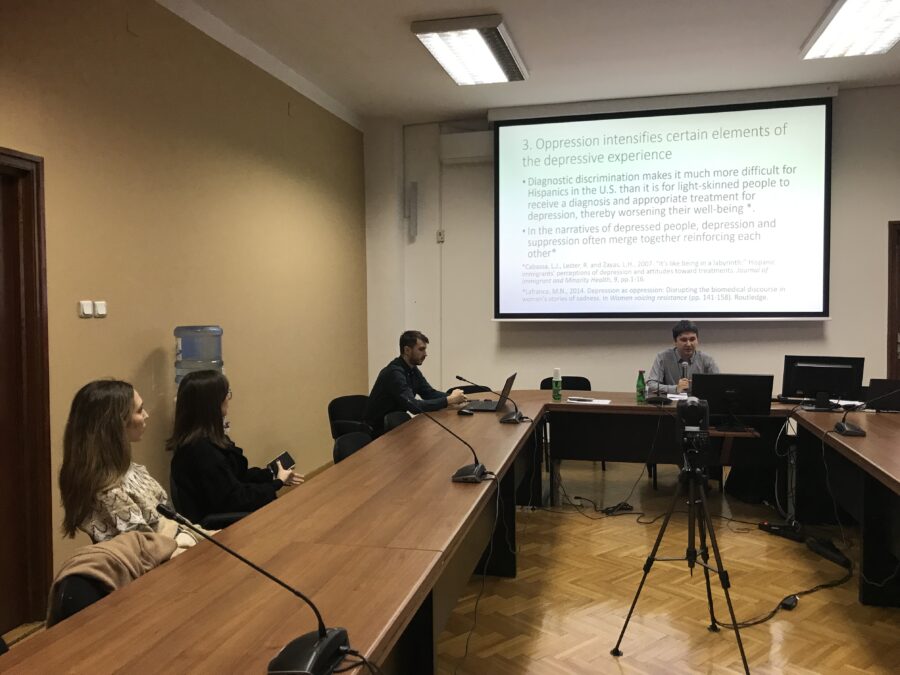Sergei Shevchenko tried to dissentangle the clinical and the political regarding depression under political oppression in his lecture titled “Depression and Politics: Towards the Phenomenology <of the Impossibility> of Collective Event.”
In a very satirical and critical tone, Dr Shevchenko persuasively argued how political oppression can create depression. He started by commenting on Ann Cvetkovich`s critical address the connection between depression and politics, emphasizing vulnerability and exclusion in the emergence of ‘political depression.’ Recent political psychology research, however, suggests that depression can suppress political participation without affecting one’s understanding of political processes. As seen in interwar Germany and Austria, the politicization of psychiatry or the medicalization of politics can lead to anti-political implications, rejecting traditional party politics or deliberative practices. Considering the intersection of political and psychiatric phenomenology, Brigitte Bargetz views depression as a form of political sensitivity granting access to the phenomenology of political emotions.
Dr Shevchenko proposes linking political phenomenology and the phenomenology of depression to understand how political emotions under dictatorship contribute to our comprehension of depression. Research in this field explores the transformation of the dynamic between anticipation and fulfilment, the space of possibilities, and the dissipation of the sense of collective unity (Ratcliffe, 2014, 2018). Political experiences reveal the suppression of a broader spectrum of possibilities, including solidarity, collective action, and shared events. Lively discussion after the lecture involved opening up such controversial topics like the role of critical phenomenology and antipsychiatry in understanding depression/oppression relationships and how the opposite case of oppression, freedom, can also cause depression.
Sergei Shevchenko’s lecture is the tenth in the series of seminars on “Philosophy and Psychiatry” organized by the Center for Philosophy at the Institute of Social Sciences.

